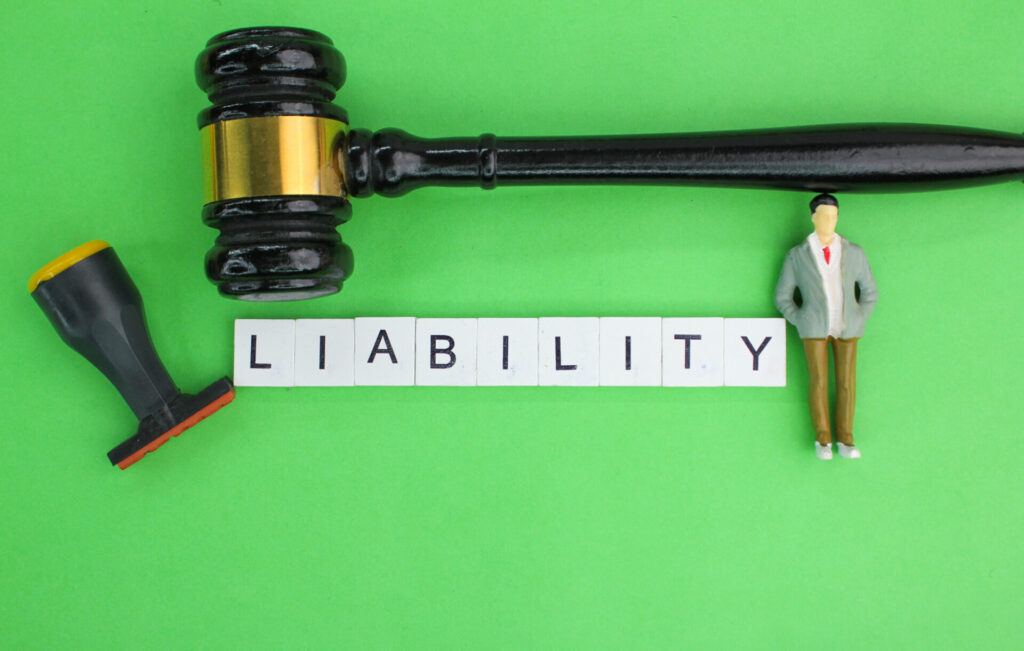
In California, notaries public play a critical role in ensuring the authenticity and legality of various documents. However, this position comes with significant risks and responsibilities. Notary insurance is essential to protect notaries from potential legal and financial liabilities. This article will delve into the types of insurance available for notaries in California, their costs, and what each type of coverage entails, helping you make informed decisions to safeguard your notary business.
Table of Contents
Why Notary Insurance is Important in California

Notaries in California face various risks, including legal claims from clients who may allege errors or omissions in the notarization process. Even a minor mistake can lead to substantial legal fees and damages. Notary insurance is designed to mitigate these risks, providing financial protection and peace of mind. While California mandates certain insurance requirements, such as bond insurance, other types of coverage, like Errors and Omissions (E&O) insurance, are highly recommended to ensure comprehensive protection.
Legal and Financial Risks
California notaries are susceptible to legal and financial risks due to the nature of their work. Errors in the notarization process, such as failing to verify a signer’s identity properly, can result in fraudulent transactions. These mistakes can lead to lawsuits, where notaries might face significant legal costs and potential damages. Without proper insurance, notaries might have to cover these expenses out of pocket, which can be financially devastating.
Regulatory Requirements
In California, the law requires notaries to obtain a surety bond, which serves as a form of insurance to protect the public from any potential misconduct or negligence by the notary. This bond ensures that clients can be compensated if they suffer losses due to a notary’s actions. While the surety bond is mandatory, other insurance types, such as E&O and general liability insurance, are optional but highly advisable for comprehensive protection.
Types of Insurance for Notaries in California
Understanding the various types of insurance available to notaries in California is crucial for ensuring adequate protection. The primary types of insurance include Errors and Omissions (E&O) Insurance, General Liability Insurance, Bond Insurance, and additional optional coverages. Each type serves a specific purpose and offers different levels of protection.
Errors and Omissions (E&O) Insurance
E&O insurance is vital for notaries as it covers legal defense costs and damages if a notary is sued for an error or omission made during notarization. For instance, if a notary fails to properly verify a signer’s identity, leading to a fraudulent transaction, E&O insurance would cover the resulting legal expenses. This coverage is especially beneficial because it protects the notary’s personal assets and provides a financial safety net.
General Liability Insurance
General liability insurance is important for notaries, especially those who operate as mobile notaries. This insurance covers third-party claims for injuries or damages that occur during the course of business operations. For example, if a notary visits a client’s home and accidentally damages property, general liability insurance would cover the repair costs. This coverage complements E&O insurance by addressing different types of risks.
Bond Insurance
In California, notaries are required to obtain bond insurance as a part of their commission process. A notary bond is a type of surety bond that provides a financial guarantee that the notary will adhere to state laws and ethical standards. If a notary commits misconduct or negligence, clients can file a claim against the bond to receive compensation. This insurance protects the public and holds notaries accountable for their actions.
Additional Optional Coverages
Notaries can also consider other coverages, such as professional liability insurance, to further safeguard their business. Professional liability insurance provides broader coverage than E&O insurance and can protect notaries against claims of negligence or inadequate work. Other optional coverages may include property insurance for office equipment and cyber liability insurance to protect against data breaches.
Errors and Omissions (E&O) Insurance

E&O insurance, also known as professional liability insurance, is specifically designed to protect notaries from legal claims arising from errors, omissions, or negligence in their professional services. This type of insurance covers legal fees, court costs, and any settlements or judgments up to the policy limit.
Coverage Specifics
E&O insurance typically covers a wide range of claims, including mistakes in notarization, failing to properly authenticate a document, and errors in record-keeping. Policies can vary, so it’s essential to read the terms carefully and understand what is covered. Most policies also include a “duty to defend” clause, meaning the insurer will provide legal defense even if the claims are groundless.
Benefits for Notaries
The primary benefit of E&O insurance is the financial protection it offers. Legal disputes can be costly, and without E&O insurance, notaries might have to pay for legal representation and damages out of pocket. This insurance also helps maintain a notary’s professional reputation by providing resources to handle claims efficiently.
Case Studies and Examples
Consider a case where a notary mistakenly notarizes a document with incorrect information, leading to a financial loss for a client. The client sues the notary for negligence. E&O insurance would cover the notary’s legal defense and any damages awarded, ensuring the notary’s personal finances are not at risk.
General Liability Insurance

General liability insurance provides coverage for claims involving bodily injury, property damage, and personal injury that occur during business operations. This insurance is particularly important for mobile notaries who travel to clients’ locations.
Coverage Specifics
General liability insurance covers a range of incidents, such as accidents that cause injury to a client or damage to a client’s property. For instance, if a notary spills coffee on a client’s expensive rug during a notarization appointment, general liability insurance would cover the cleaning or replacement costs.
Importance for Mobile Notaries
Mobile notaries face unique risks as they frequently visit clients’ homes, offices, and other locations. General liability insurance provides peace of mind by covering accidents and incidents that might occur while on the go. This coverage is an essential complement to E&O insurance, addressing different aspects of a notary’s liability.
Comparison with E&O Insurance
While E&O insurance covers professional errors and omissions, general liability insurance addresses physical accidents and injuries. Both types of insurance are crucial for comprehensive protection, ensuring that notaries are covered for a wide range of potential liabilities.
Bond Insurance
Bond insurance, or surety bonds, are a legal requirement for notaries in California. These bonds provide a financial guarantee that the notary will perform their duties ethically and in compliance with state laws.
Explanation of Bond Insurance
A notary bond is essentially a contract among three parties: the notary (principal), the state (obligee), and the surety company (guarantor). The bond ensures that the notary will adhere to all legal requirements and provides a financial guarantee to clients if the notary fails to do so.
Why It’s Required in California
California law mandates that notaries obtain a surety bond as part of their commission process. The bond amount is typically $15,000, which serves as a financial safeguard for the public. If a notary commits misconduct or negligence, clients can file a claim against the bond to receive compensation.
How It Protects the Public and the Notary
Bond insurance protects the public by providing a source of compensation for financial losses caused by a notary’s actions. It also holds notaries accountable, encouraging them to adhere to high ethical standards. For notaries, having a bond in place is a legal requirement and an essential part of their professional responsibilities.
Cost of Notary Insurance in California

The cost of notary insurance in California varies based on several factors, including the type of coverage, the notary’s experience, and the amount of coverage needed. Understanding these costs can help notaries budget appropriately and ensure they have the necessary protection.
Average Costs for Different Types of Insurance
On average, E&O insurance can cost between $20 to $40 per month, while general liability insurance may range from $25 to $50 per month. Bond insurance is typically a one-time fee of $40 to $100 for a four-year term. These costs can vary based on the coverage limits and the notary’s specific risk profile.
Factors Affecting Insurance Premiums
Several factors can influence the cost of notary insurance premiums, including:
- Coverage Limits: Higher coverage limits typically result in higher premiums.
- Claims History: Notaries with a history of claims may face higher premiums.
- Experience and Training: More experienced notaries or those with specialized training may receive lower rates.
- Location: Insurance costs can vary based on geographic location and local regulations.
Tips for Finding Affordable Insurance
To find affordable notary insurance, consider the following tips:
- Compare Quotes: Obtain quotes from multiple insurance providers to find the best rates.
- Bundle Policies: Some insurers offer discounts for bundling multiple types of coverage.
- Increase Deductibles: Opting for a higher deductible can lower your premium, but ensure you can cover the deductible if needed.
- Maintain a Clean Record: Avoid claims and maintain a clean professional record to qualify for lower rates.
How to Choose the Right Insurance for Your Notary Business

Selecting the right insurance for your notary business involves assessing your specific needs and risks. Consider factors such as the volume of notarizations you perform, whether you operate as a mobile notary, and the types of documents you handle. It’s essential to work with reputable insurance providers who specialize in notary insurance and can offer tailored advice. Reviewing policy details and exclusions carefully will ensure you get the best coverage for your needs.
Assessing Your Insurance Needs
Begin by evaluating the scope of your notary business. Consider the following questions:
- Volume of Work: How many notarizations do you perform monthly?
- Type of Clients: Do you work with high-profile clients or sensitive documents?
- Mobile Operations: Do you travel frequently for notarizations?
Answer
ing these questions will help you determine the types and amounts of coverage you need.
Factors to Consider When Selecting Insurance
When choosing insurance, consider the following factors:
- Coverage Limits: Ensure the policy provides adequate coverage for potential claims.
- Exclusions: Understand what is not covered by the policy to avoid surprises.
- Provider Reputation: Work with reputable insurance providers with experience in notary insurance.
- Customer Service: Choose providers known for excellent customer service and claims handling.
Tips for Working with Insurance Providers
To get the best coverage and rates, follow these tips when working with insurance providers:
- Ask Questions: Don’t hesitate to ask detailed questions about coverage options and exclusions.
- Read Reviews: Check online reviews and testimonials from other notaries.
- Seek Recommendations: Ask colleagues for recommendations on reliable insurance providers.
- Review Annually: Regularly review your insurance needs and policies to ensure continued adequate coverage.
Conclusion
Securing the right insurance is a critical step for notaries in California to protect themselves and their clients. By understanding the types of insurance available, their costs, and the specific coverage they provide, notaries can make informed decisions to safeguard their business. Investing in comprehensive insurance coverage not only ensures compliance with state regulations but also provides peace of mind and financial security. Take the necessary steps to evaluate your insurance needs and choose the right policies to support your notary career.
